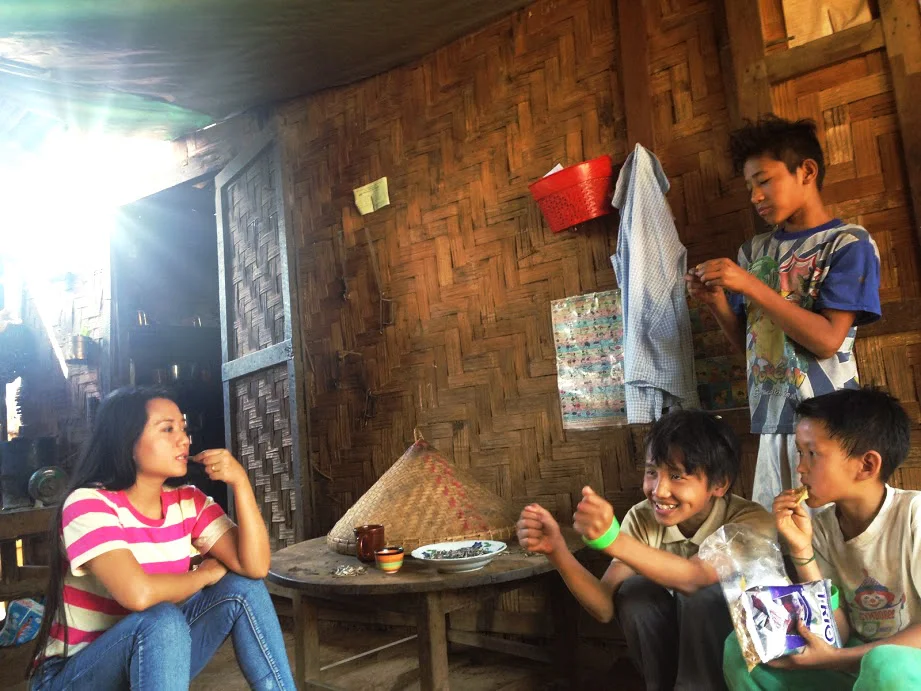Tar and Lay
Family breakdown is one of the biggest reasons why children in Myanmar are placed into orphanages. Without support to help parents during these difficult times, whole families can rip apart. When Tar and Lay’s parents got divorced, their lives were changed forever. This is their story.
Lay
Seven years ago, when the boys were just five years old, their mother and father split up. Following this separation, their mother moved away, and to this day her family still don’t know where she is. Tar and Lay were left in the care of their father, who tried to cope with the separation by drinking heavily. Eventually their father’s alcohol addiction became so bad that he was no longer able to take care of his sons. One of the boy’s relatives took them in instead.
Whilst Tar and Lay’s father initially approved of the boys moving out, over time he became frustrated, and when he got drunk he would come and try to remove the boys and take them back to his house. The children’s relatives struggled to manage the situation. One of the boy’s family members decided to send the boys away to live in an orphanage in Yangon.
When our team met these brothers, they had lived in the orphanage for seven years, and they hadn’t been home during this time. Their father had made an effort to contact them while they’d been away, but they hadn’t been able to meet with him. As our social workers began to work with the boys, they began to plan a trip back to their home town over the summer holidays. The boys were ecstatic about visiting their family, and at the idea of learning about their traditions and culture.
When the summer holidays arrived and they left the orphanage, the boys were excited and ready to go. They brought gifts with them, and were full of questions about what to expect when they arrived. It was determined that the boy’s aunt would take care of them during the summer, as she loved them a lot, and was able and willing to provide a safe space for them.
The Boys With their Father
The boys had a wonderful time being back with their family. At one point during their stay however, their aunt had to travel to a neighbouring town, and she left the boys in the temporary care of another relative. During this time the children’s father came and asked the boys to move back in with him, and without their aunt around to stop them, the boys followed him. While their father loved his sons very much, he was not a suitable guardian as he would still drink too much at times. When their father was drunk, he would try to talk to them in their native language, not realising that the boys couldn’t understand him. When children are taken at a young age away from their native villages in Myanmar and placed into orphanages, they often lose their ability to speak in their local tongue and dialect. Tar and Lay no longer had proficiency in their native tongue, and found it stressful when their father tried to communicate with them while drunk. While the boys loved their father in the countryside, staying with him was not a healthy situation.
During a meeting between our social workers, the boys and their family, it was reiterated that it was necessary for the boys to stay in the custody of their aunt. The children were allowed to visit their father as they pleased during the rest of their stay, but could no longer stay at his house.
At the end of their summer visit our social workers spoke with the boys about their holidays. The boys reflected on their time at home with joy. They had mixed feelings about their father, but said that they were no longer disappointed in him. They said that they felt that they understood him better, and that they wanted to visit again next year. It was time to go back to the orphanage.
Situations like these are challenging because it seems like there is no perfect solution for the brothers. While the institutional care they are currently receiving is damaging to their health and development, it is not currently possible for them to return home permanently to live with their family either. We are excited for a time when a wider range of alternative care options become widely available in Myanmar, such as foster care and adoption. Until then, we are happy that Tar and Lay can visit their home during the summer holidays, so they can safely and briefly reconnect with their family and culture. For now, this is enough.
Tar and Lay with their Friend




